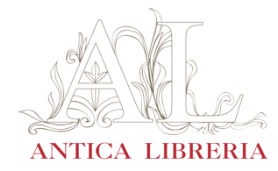BEGNUDELLI Bass Francesco Antonio. - Descended from a noble family from Trentino, he was born in Dresin Val di Non, in 1644 or 1645. Through the intercession of Queen Christina of Sweden he was admitted to the Germanic College in Rome in 1664, where he received holy orders, against the wishes of his father Antonio who he had called him back to Trento after his brother's death - and he graduated in theology. Having returned to Trento in 1670, he was appointed vicar general of that diocese around 1677. Having obtained a prebend at the cathedral church of Freising in 1679, he settled in that city, where he was spiritual advisor from 1690, and later canon capitular of the cathedral. In 1695, Johan Franz Ecker became bishop of Freising and was appointed vicar general by him on 23 July 1696. There is news of a learned inaugural speech read by B. for the foundation of the Benedictine gymnasium of Freising. Remembered as a man of great piety and doctrine, he died in Freising on 9 October. 1713 and was buried in the chapel of St. John the Baptist, which he had built in the cathedral church. His only work is the Bibliotheca Iuris Canonico-Civilis practica, its repertoriu quaestionum magis practicarum in utroque iure, in four volumes in folio, which for more than 'a century met with considerable success: published in 1712 in Freising (a first edition in Cologne in 1707 seems to be excluded), it was reprinted in Geneva in 1747, and again in 1758 (Modena-Venice). The Bibliotheca appears as an orderly treatment with lexicographic criteria, of the entire civil and canon law: essentially, within each lemma, which usually begins with a brief definition, the matter is exposed in the most frequent practical interest questions, resolved, according to the opinions of the most famous jurists and theologians of that time. B.'s interest is mainly aimed at those themes in relation to which conflicts of jurisdiction usually arise, or the exercise of secular or ecclesiastical jurisdictional power is in any case controversial (e.g. voci rebellis). The aim of the work, clearly conceived for the use of practitioners, it is revealed both in the extensive development of a detailed case study and in the listing of documents, deeds and pontifical decrees, reported for the purpose of simplification. B. examines in detail, in their individual aspects, relatively recent training institutes with wide practical application: in fact, he has little need for systematicity and proportion in the development of topics which would nevertheless present considerable theoretical interest (for example for example, the rubric ius patronatus occupies a large part of the entry ius). Clearly inspired by the work of A. Barbosa, B. reveals, in the choice of the doctrinal sources cited, an excellent knowledge of the legal literature of his time, and of the opinions of the most illustrious masters of the age of common law, especially Bartolo and Baldo. This does not prevent him from moving away from traditional views in the examination of themes more widely felt in the Germanic environment. The training and intentions of the great theologian acquire particular prominence therefore he faces problems that affect the position of the Roman Curia in the universal Church: yes thus returns to support (voice: pope) the ancient thesis which attributed to the pontiff ''omnem imperium tam in spiritualbus quam in temporalibus'', while reserving the ordinary exercitium to the emperor; the most recent doctrine of the power of the Church quoad temporalia is also remembered as indirect, i.e. to be exercised only if necessary for the implementation of the bonum regimen quoad spiritualia. The problem of the possibility that the pope falls into error or professes heresy is resolved by B. with the affirmation of the infallibility of the pontiff in matters of faith and customs.









